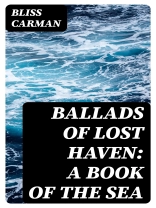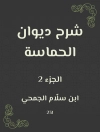In 'Ballads of Lost Haven: A Book of the Sea, ’ Bliss Carman explores the thematic depths of maritime life through a collection of lyrical poems that resonate with the beauty and peril inherent in the sea. Written during the late 19th century, a time marked by a burgeoning interest in nature and adventure, Carman’s literary style is characterized by vivid imagery and a musical cadence that captures the essence of the ocean and its myriad emotional landscapes. His verses conjure a sense of nostalgia, reflecting the transient nature of life and the allure of the unknown, encapsulating the maritime spirit that has enthralled poets and writers alike. Bliss Carman, a Canadian poet often associated with the Confederation Poets, was deeply influenced by his experiences in the natural world and his fascination with the sea. His literary career, bolstered by a rich education and his travels, provided him with unique insights into both the human experience and the ethereal realms of the maritime world. These influences culminate in 'Ballads of Lost Haven, ’ revealing his passion for blending personal reflection with broader universal themes. This collection is a must-read for admirers of nature poetry and those captivated by the sea. Carman’s evocative explorations invite readers to reflect on their own relationship with the ocean and the mysteries it holds. Perfect for both poetry enthusiasts and newcomers alike, it offers a profound meditation on loss, longing, and the eternal allure of the coastline.
O autorze
Bliss Carman (1861–1929) was a preeminent Canadian poet who became one of the most celebrated literary figures of his time. Born William Bliss Carman in Fredericton, New Brunswick, he attended the University of New Brunswick before venturing to further his education at Harvard University, where he developed his poetic craft and honed his distinctive voice. Carman’s body of work is known for its romantic vigor and a deep-seated appreciation for nature, which is often seen as a reflection of the fin de siècle transcendentalist and romantic movements. His mastery in lyrical poetry is exemplified by his well-regarded volume 'Ballads of Lost Haven: A Book of the Sea’ (1897), an arresting collection that captures the majestic and mystical essence of maritime life and lore. Carman’s versification is characterized by its fluidity, vivid imagery, and a profound sense of musicality, traits which helped to elevate his status as a leading voice in Canada’s literary canon. Throughout his career, he maintained a prolific output, contributing to the Canadian cultural landscape through his personalised exploration of themes such as nature, spirituality, and individualism. Carman’s legacy endures as a touchstone for Canadian poetry and his works continue to be celebrated for their lyrical beauty and philosophical depth.












